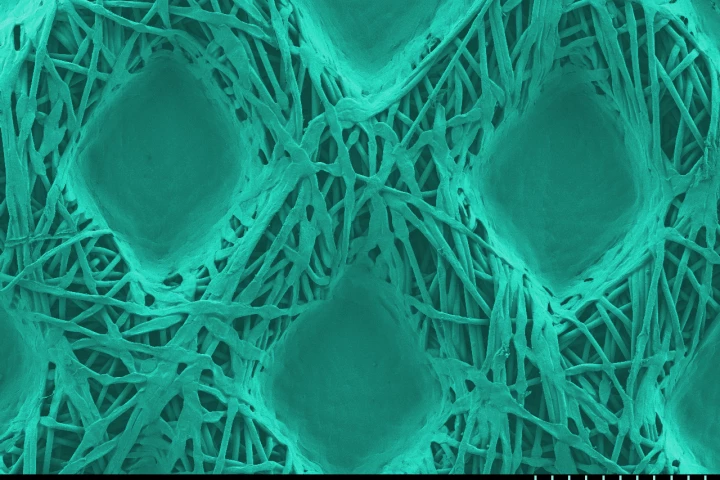Superbugs
-
A. baumannii bacteria is a nasty antibiotic-resistant bug that thrives in hospitals, where it takes advantage of weakened immune systems. Researchers have now found the bacteria's secret weapon and have ideas on how to use it for good.
-
Science's war against the super-small and, sometimes, super-deadly bacteria that have evolved to resist destruction by antibiotics may have just enlisted new, unlikely allies: invertebrate creatures living in the frigid depths of the Arctic Ocean.
-
To help combat the rise of antibiotic-resistant bacteria, researchers have been experimenting for years with drug-free methods to blast disease-causing bugs. A new type of stainless steel does exactly that, in a convenient and affordable way.
-
Antibiotic-resistant bacteria are poised to become a global health concern. In the race to develop new weapons, scientists have created a new family of antibacterial polymers that can kill 'superbugs' in a way they can't evolve resistance to.
-
Hospitals are meant to heal people, but patients often pick up superbugs during their stay. Scientists have now developed long-lasting antimicrobial coatings for textiles that could allow hospital curtains to quickly kill viruses and bacteria.
-
Hospital patients often pick up dangerous, hard to treat infections. An experimental vaccine given on arrival to hospital could protect against a range of drug-resistant bacteria and fungi, by activating a different arm of the immune system.
-
Researchers have derived an antibiotic from microbes living in the sandy soil of North Carolina. Because it works completely differently than others before it, clovibactin might help turn the tide in the battle against today's nastiest superbugs.
-
Decades of work has paid off, with scientists developing a potent new synthetic molecule that swiftly knocked out 285 strains of bacteria it was tested on, setting it up as a valuable ally in our fight against a looming superbug infection crisis.
-
We’re losing the arms race against bacteria as they increasingly develop resistance to our best drugs. Now scientists have identified a new class of molecules that disable a major superbug weapon, which could make existing antibiotics effective again.
-
A novel antibiotic combo has proven promising in a clinical trial for treating an often-deadly form of pneumonia. The experimental drug was found to be at least as effective in preventing death as the current standard, but with far milder side effects.
-
They look like they don't have a care in the world - and, as far as their health goes, they may not. Scientists believe the raging organism party in their fur makes them infection-resistant, and could be the key to new superbug-fighting antibiotics.
-
Bacteria are fast developing resistance to our antibiotics, potentially ushering in a new “dark age of medicine” where basic infections become lethal again. Now scientists have developed self-assembling “nanonets” that can trap and kill superbugs.
Load More











